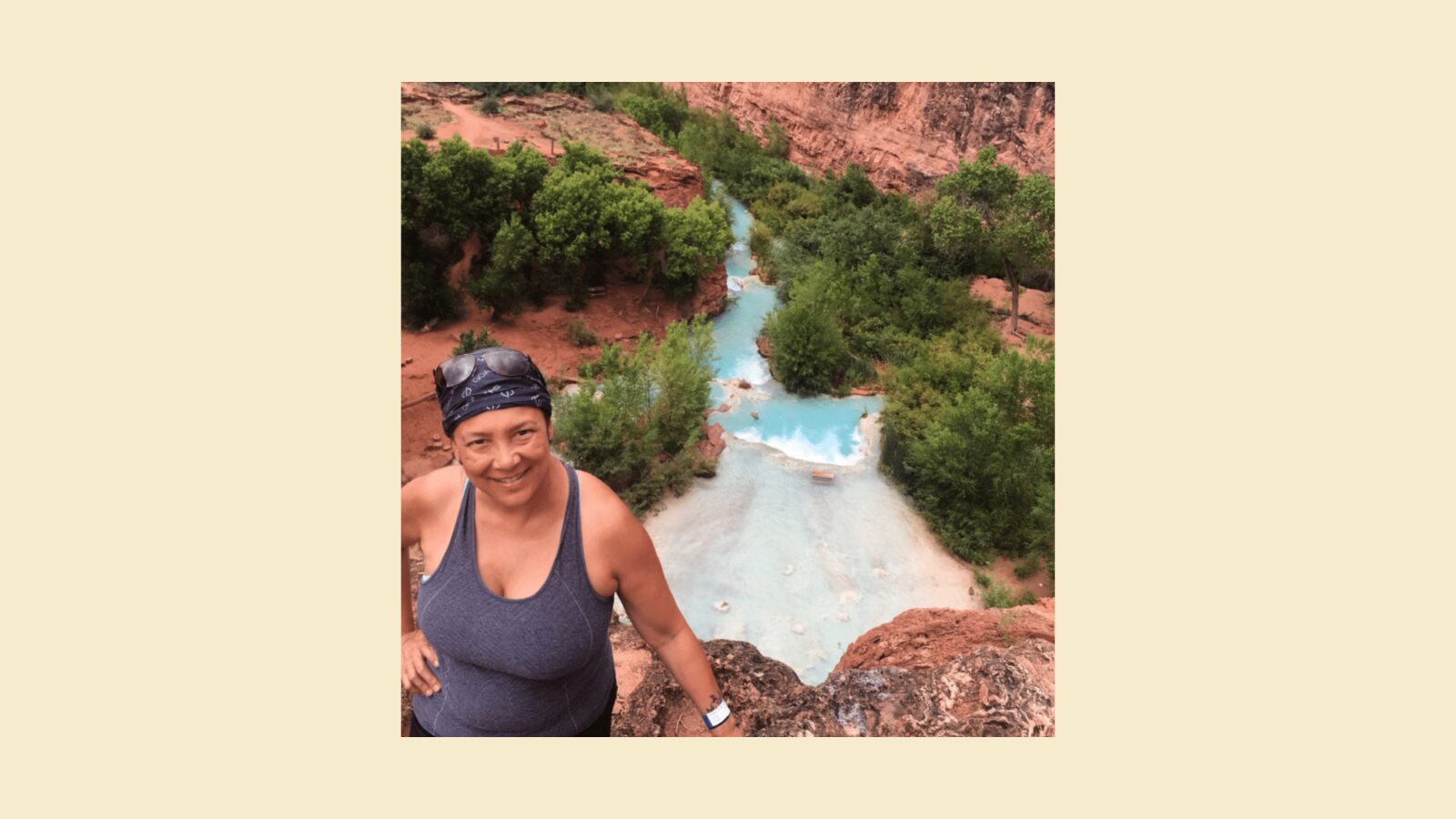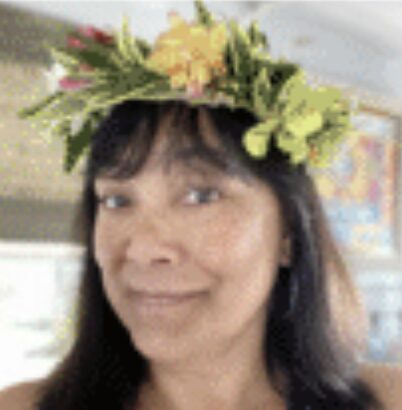What Nature Taught Me About Advocacy
6 MINS to read

I have sat at many summits, in awe of the tiny speck that I am in the bigness (vastness) of nature. Alpine lakes at 11,000 feet, the smell of pine through my nostrils, the sound of my breath, squirrels chattering, and leaves rustling through the trees creating their own music as the wind moves through. Sunlight through the tree cover, crunchy branches under my feet, and I walk through clouds. Gentle knocking of rain on my tent, the brightness of the full moon, like a flood light at 1am. The sound of distant thunder and lightning that ignites a distant mountain range. All of these I have experienced.
I started hiking and backpacking a year after I was diagnosed in 2012 with metastatic breast cancer. The first year of treatment was harsh, going from chemotherapy to contracting sepsis, to surgeries, and to radiation. When I started to regain my strength, my now ex-husband took me to Yosemite. I sat on a bench, watching men and women with large backpacks emerging from and entering a trailhead (the John Muir Trail), and thought to myself, “I will do that one day.” That was early in 2014. Nature changed the way I journey(ed) through metastatic breast cancer.
I began my MBC advocacy in 2015 by attending the inaugural Hear My Voice training hosted by Living Beyond Breast Cancer. I started with what I knew best at the time and that was hiking. Together with a friend, we started a nonprofit, Climb for a Cure, in Southern California and invited our community out for a short hike to raise funds for research and MBC support. After five years of doing that, I wanted to stretch myself and learn about science and research advocacy. Without a sciency bone in my body, I took every training I could and looked for opportunities to work alongside cancer researchers, critiqued peer-reviewed applications, and attended scientific conferences—ASCO, SABCS. I continue to do this work today.
But still, I felt that I was not in my place of passion. What was it? When I thought back about nature and how it fed my soul in that it became part of my survivorship. I knew that MBC quality of life was where my heart was and continues to be. I started Project Life in 2021. It is a virtual wellness house for those living with MBC and their caregivers.
Nature taught me how to respect and tend for myself when given this terrible diagnosis. It also taught me about advocacy and the parallels there are between the two.
Resilience: Nature is resilient, bouncing back from disruptions. Advocacy work also demands resilience, as setbacks are common, but persistence can lead to eventual success.
Interconnectedness: In nature, everything is interconnected — changes in one part of an ecosystem can affect the whole. Advocacy work, too, requires understanding the interconnectedness of issues, where addressing one problem can influence broader systemic change.
Adaptation: Nature constantly adapts to changing environments. Effective MBC advocacy requires adapting strategies to the shifting changes in research, treatments, side effects, and societal pressures o the diagnosis.
Nurturing: Just as plants and animals need care and nurturing to thrive, advocacy efforts require nurturing relationships, communities, and ideas to grow and succeed. We all must work together to effect long-term survivorship for patients through treatment options, as well as nurturing their quality of life.
Ecosystem Balance: In nature, every species and process contributes to the balance of an ecosystem. Similarly, advocacy work involves various stakeholders, strategies, and actions working together for the common goal for the MBC patient.
Growth Over Time: Just as a seed takes time to grow into a tree, advocacy work often requires patience and persistence. The impact might not be immediate, but consistent efforts can lead to significant, long-term change.
Since 2022, progression and challenges of the disease have kept me from the place I call my healer. I recently went through surgery to remove dead bone from my scapula, and am in physical therapy to regain strength and movement in my right arm. Like a wildfire, MBC can ravage the landscape of our bodies. Like a wildfire, nature will rejuvenate and regrow. As I continue my road of both advocacy and living with metastatic breast cancer, I am beholden to nature for its lessons it has taught me in my life.
Lesley Kailani Glenn • (she/her) • CEO/President at Project Life. Diagnosed at 47. IDC, de novo Stage IV, ER+, HER2 low. Lesley has been actively involved in metastatic breast cancer advocacy since 2015, training with the inaugural Hear My Voice volunteer class presented by Living Beyond Breast Cancer. She was invited back as a mentor in 2018 for new advocates and was awarded the Living Beyond Breast Cancer Leadership Volunteer Award in the Fall of the same year. She started her advocacy by raising funds for research and support through her collaboration with Climb for a Cure. She later moved onto research/science advocacy. She enjoys working with researchers and other stakeholders in the metastatic breast cancer field and also does peer review for the DOD and Komen. Lesley founded Project Life in 2021. Project Life is a virtual wellness house for those living with MBC and their loved ones. Lesley has three amazing grown children, each making their mark in their own way, in Southern California. Lesley lives in the Rogue Valley of southern Oregon with her fur kids, Barkley, a terrier mix that has summited many mountains with her and her three Covid cats, whom she adopted during the pandemic; Jackson, Banjo, and Ella. • @Lesley_Kailani

Rethink is honoured to be the guest editor for Wildfire Magazine’s annual Metastatic Breast Cancer issue focusing on Advocacy.
This piece has been republished with permission from WILDFIRE Magazine, the “MBC Advocacy” issue issue, published originally October 19, 2024. More information available at wildfirecommunity.org
WILDFIRE Magazine is the only magazine for young women survivors and fighters of breast cancer under 45 years old. Headquartered in Santa Cruz, California, WILDFIRE is a beautiful, story-based bi-monthly magazine published on different themes relevant to young women survivors, from stage 0 to stage IV. Beautiful and ad-free! Visit wildfirecommunity.org for more info.